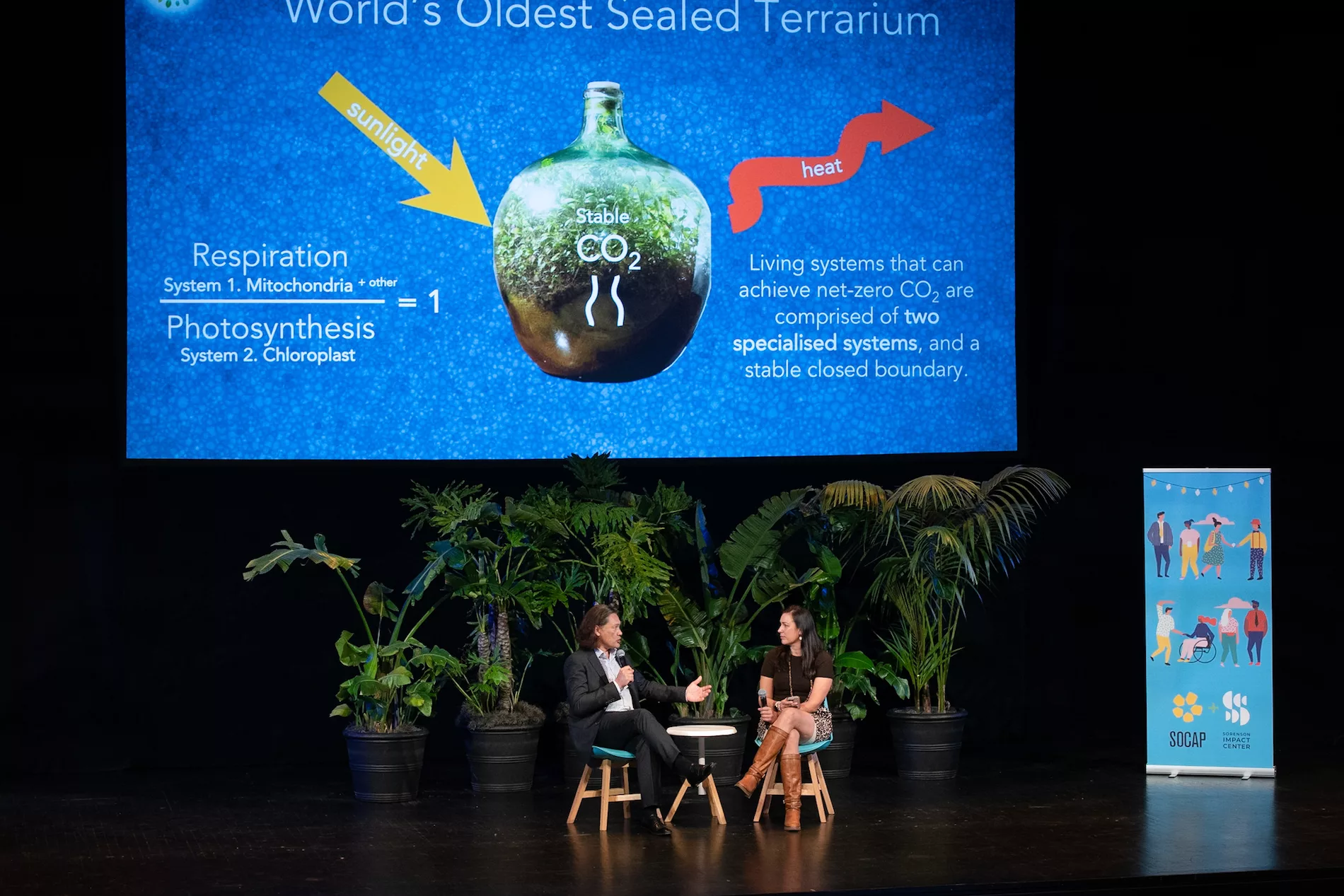From SOCAP22: Do We Need a Second Economy? How to Think Like a Plant
In the face of the global climate crisis, Delton Chen sees current conventional methods — carbon taxes, subsidies, credits, and more — falling short. For inspiration on a climate change solution, he looked to nature and a supportive framework to prompt climate action and deliver climate mitigation rewards.
Chen, Project Director & Founder of Global Carbon Reward, shared his vision for a policy-oriented solution to climate change during a fireside chat at SOCAP22 with Alexis Bunten, Founder and CEO, WAQAA LLC, Senior Advisor, JumpScale LLC, and Program Director, Bioneers. In developing a systemic strategy to tackle the climate crisis, Chen melds his education as an engineer with his profession as a geohydrologist.
His conceptual model for Earth’s biosphere as it faces global warming? A terrarium, which similarly is a closed model that houses two types of living systems: photosynthesis and respiration. The terrarium serves as a net zero model for Chen’s climate solution that would use system-changing policy to fund climate action together with healthy ecosystems, vibrant communities, and reliable clean energy.
“We have an economy which is specializing for combustion — the availability of biofuels and fossil fuels. We use the energy to produce goods and services,” he said. “The resolution through this conceptual model is we need a parallel economy which is analogous to photosynthesis. But its role as a parallel economy is to conventionally mitigate, to pull carbon out of the atmosphere and sequester it, because we’re going to need that service.”
This is what Chen calls an ecosystem service: one that is not for traditional goods and services but provides protection and regeneration to the biosphere so people and other living things can survive on the planet. He and the team at Global Carbon Reward are seeking funding to demonstrate their concept for climate mitigation and carbon removal. “Not only do we need to manage the quantity of carbon, we also need to manage the quality, meaning the context of how that carbon is stored,” he said.
The carbon reward differs from other solutions because it incorporates a carbon pricing matrix that offers a reward in the form of a carbon currency, Chen said. “It is a financial asset and a pricing reward for carbon removal and conventional climate mitigation,” he said. “It’s a public finance guarantee that will involve the world’s central banks.”
The carbon reward and its metrics will serve as a complement to corporate ESG efforts, he said, and provide a financial incentive for scalable climate action. “We have to stop the extraction with an alternative economy that can price the protection of the planet,” he said, adding that the carbon reward also will create jobs in a regenerative industry that benefits local communities. “We need to convince policymakers and economists that this is a rational policy.”
The carbon reward concept is “an idea whose time has come,” Chen said. “Today’s carbon markets are not really designed to mitigate, they are designed to lower the aggregate costs of mitigating. Companies are doing things voluntarily because the policies aren’t there — we have a policy hole. … The policy is a missing piece in the jigsaw puzzle.”
Watch Do We Need a Second Economy? How to Think Like a Plant
Speakers:
Delton Chen, Project Director & Founder, Global Carbon Reward
Alexis Bunten, Founder and CEO, WAQAA LLC, Senior Advisor, JumpScale LLC, and Program Director, Bioneers






